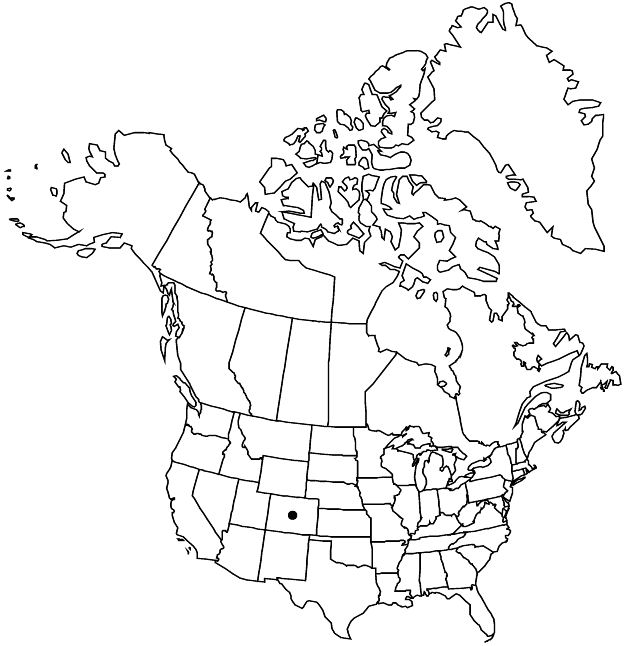Difference between revisions of "Mentzelia paradoxensis"
Madroño 57: 249, fig. 2A. 2010.
FNA>Volume Importer |
imported>Volume Importer |
||
| (2 intermediate revisions by 2 users not shown) | |||
| Line 51: | Line 51: | ||
|publication year=2010 | |publication year=2010 | ||
|special status=Endemic | |special status=Endemic | ||
| − | |source xml=https:// | + | |source xml=https://bitbucket.org/aafc-mbb/fna-data-curation/src/2e0870ddd59836b60bcf96646a41e87ea5a5943a/coarse_grained_fna_xml/V12/V12_376.xml |
|genus=Mentzelia | |genus=Mentzelia | ||
|section=Mentzelia sect. Bartonia | |section=Mentzelia sect. Bartonia | ||
Latest revision as of 19:15, 5 November 2020
Plants biennial, usually cylindric, rarely candelabra-form. Stems solitary, erect, straight; branches distal or along entire stem, ± equal, perpendicular to stem, especially proximal and mid-stem, or slightly antrorse, especially distal, straight; hairy. Leaves: blade 38.1–95 × 6–17(–26) mm, widest intersinus distance 1.6–4.7 mm; proximal oblanceolate, lanceolate, or elliptic, margins dentate to serrate or pinnate, teeth or lobes 10–22, slightly antrorse or perpendicular to leaf axis, 2–6.8 mm; distal elliptic to lanceolate, base not clasping, margins dentate to serrate or pinnate, teeth or lobes 8–16, slightly antrorse or perpendicular to leaf axis, 2.4–8.5 mm; abaxial surface with simple grappling-hook, complex grappling-hook, and needlelike trichomes, adaxial surface with needlelike and occasionally simple grappling-hook trichomes. Bracts: margins entire. Flowers: petals golden yellow, 8.3–14.5(–17.2) × 1.7–5.3 mm, apex acute to rounded, hairy abaxially; stamens golden yellow, 5 outermost petaloid, filaments narrowly spatulate, slightly clawed, 4.9–12.5 × 1.2–3.8 mm, with or without anthers, second whorl with anthers; anthers occasionally twisted or straight after dehiscence, epidermis papillate or not; styles 5.4–10.4 mm. Capsules cup-shaped, 5–9 × 3.7–6.5 mm, base rounded, not longitudinally ridged. Seeds: coat anticlinal cell walls straight to slightly wavy, papillae 6–11 per cell. 2n = 20.
Phenology: Flowering Jun–Sep.
Habitat: Sparsely vegetated gypsum knolls.
Elevation: 1500–2000 m.
Discussion
Mentzelia paradoxensis is known only from white gypsum hills in Paradox Valley, Montrose County.
Selected References
None.
